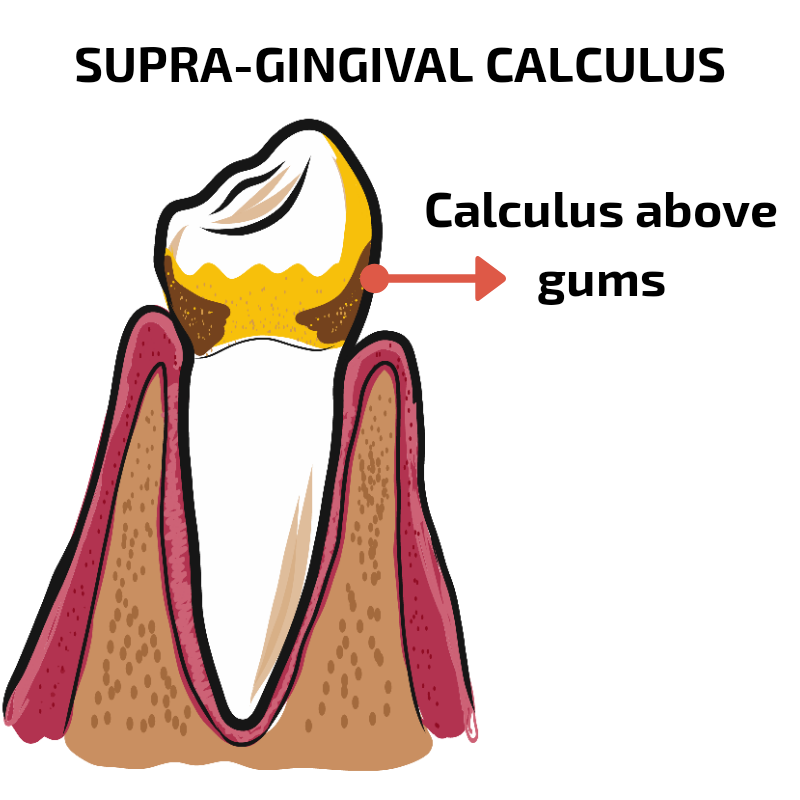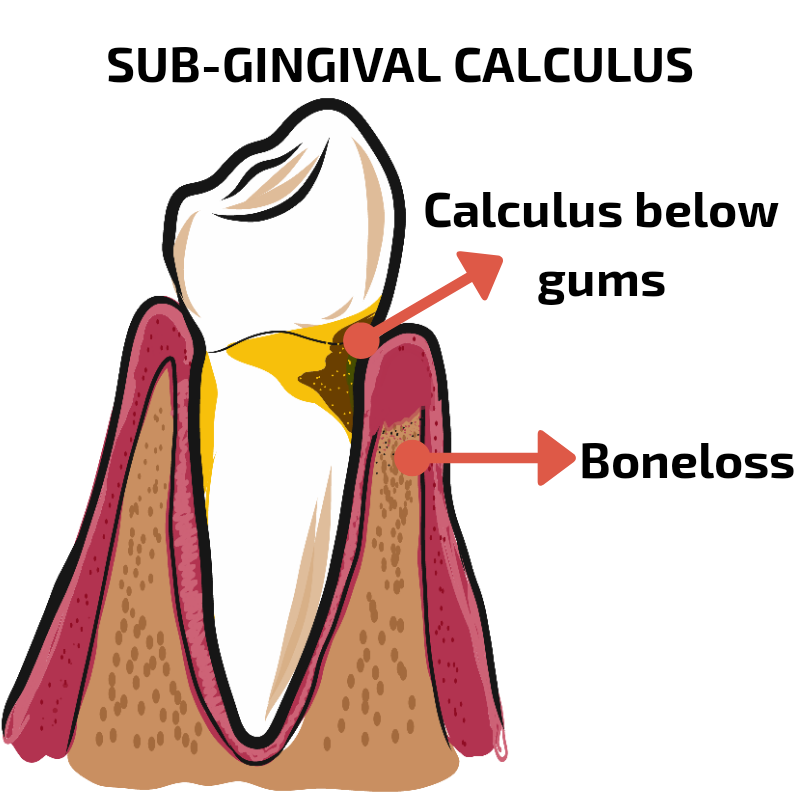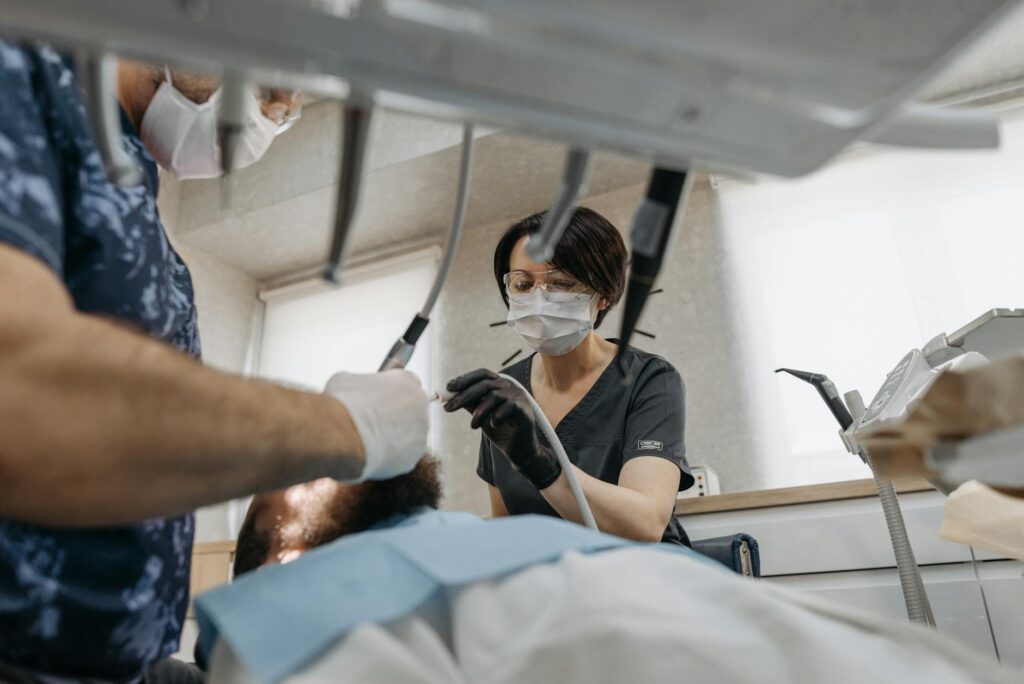Breath odor, an age-old issue plaguing countless individuals worldwide, extends beyond being a mere inconvenience. It infiltrates social interactions, causing discomfort and emotional distress. Understanding its origins, particularly about oral health, unveils a pertinent question: Can teeth cleaning effectively tackle this pervasive problem?
Table of Contents
The Culprits Behind Bad Breath
Volatile sulfur compounds (VSCs), products of bacterial action on sulfur-containing amino acids, lie at the heart of oral malodor. Intra-oral factors like periodontal diseases, tongue coating, poor oral hygiene, and dry mouth amplify VSC levels, contributing significantly to bad breath.
Exploring External Factors
Beyond intra-oral triggers, external elements like smoking, respiratory infections, and systemic diseases can exacerbate breath odor. These factors contribute to the complexity of the issue, making effective solutions a multifaceted endeavor.
Smoking and Tobacco Use
The persistent stale odor in the mouth due to smoking or tobacco use can be challenging to eliminate. Reducing or quitting these habits is beneficial, coupled with professional teeth cleaning procedures to eradicate lingering odors.
Take the first step to a better Oral health!
Get tips on Oral health and discover ways to improve your Dental health. Sign up today
Infections in Throat or Respiratory System
Throat, sinus, or respiratory infections are often accompanied by unpleasant breath. Seeking medical intervention not only resolves the underlying infection but also aids in restoring fresher breath.
Kidney or Liver Disease
Unusual bad breath might indicate underlying kidney or liver issues. Prompt medical attention upon detecting atypical odors is crucial for timely intervention and treatment.
Dry Mouth or Dehydration
Insufficient saliva production, often due to medications or illness, leads to dry mouth. Hydration and medical guidance are imperative, as saliva plays a pivotal role in cleansing the mouth and eradicating bacteria.
The Role of Professional Dental Cleanings
Inadequate oral hygiene isn’t merely tied to a range of oral health issues; it’s a key contributor to oral malodor. While mechanical tooth cleaning—embracing practices like tooth brushing and interdental flossing—is an indispensable daily oral hygiene ritual, numerous studies underscore that relying solely on tooth brushing may not be sufficient to effectively curb oral malodor.
Regular dental cleanings serve as a linchpin in preventing VSC formation and maintaining oral health. These appointments involve a meticulous examination of dental health, removal of plaque, tartar, and identification of gum diseases. But can these cleanings truly alleviate bad breath?
Understanding the Connection
Teeth cleanings serve as a frontline defense against bad breath. They effectively prevent VSC formation by eliminating plaque, and tartar, and identifying underlying gum issues. Plaque—a sticky film comprising bacteria cells, dead skin cells, and food particles—can harden into tartar, causing gum recession and subsequent bone loss around teeth roots if left unaddressed.
Consequently, gaps form between teeth, creating potential spaces where food particles accumulate. These trapped food particles undergo decomposition within these pockets, giving rise to unpleasant odors and, consequently, contributing to bad breath.
How Cleanings Combat Bad Breath
Professional cleanings effectively remove the bacteria responsible for bad breath. The process involves thorough examinations for signs of gum disease, providing oral hygiene instructions to prevent recurrence, and removing plaque buildup along the gum line and below the gum line.
Your dentist offers a spectrum of teeth cleaning options tailored to your specific oral hygiene condition. These options may include:
Supra-Gingival Cleaning
This method targets the cleaning of the tooth surface above the gum line. It involves removing plaque and tartar deposits from the visible parts of the teeth, aiding in the prevention of gum disease, and promoting overall oral health.

Sub-Gingival Cleaning
Unlike supra-gingival cleaning, this technique focuses on cleaning below the gum line. It involves meticulously cleaning the root surfaces of teeth to eliminate plaque and tartar deposits that may have accumulated in the pockets around the roots.

Teeth Cleaning with Root Planing
Root planing aims to smooth the root surfaces after the removal of plaque and tartar. This process helps prevent bacteria from re-adhering to the roots, fostering a clean environment for gums to reattach to the teeth properly.

Flap Surgery
In cases of advanced gum disease where deep cleaning isn’t sufficient, flap surgery may be recommended. This surgical procedure involves lifting the gums to access and clean the roots thoroughly. Once cleaned, the gums are sutured back in place to promote proper healing.
Bone Grafting
When bone loss has occurred due to severe gum disease, bone grafting may be necessary. This procedure involves transplanting bone tissue to regenerate lost bone and provide structural support to the teeth.
Each of these cleaning options serves a distinct purpose, addressing various oral health conditions to restore optimal oral hygiene and prevent further dental issues. Your dentist will recommend the most suitable cleaning method based on a comprehensive assessment of your oral health status.
Home Care and Holistic Solutions
While professional cleanings play a crucial role, a comprehensive approach to oral health is essential. Daily practices like brushing teeth with fluoride toothpaste, flossing, and using mouthwash aid in reducing bacterial buildup between cleanings.
The Big Question: Can Cleanings Reduce Bad Breath?
The short answer is yes. Dental cleanings significantly reduce bad breath by targeting the root cause—bacteria buildup and gum diseases. By eliminating these factors, cleanings pave the way for fresher breath and sustained oral health.
Alternatively, a comprehensive general body examination becomes imperative as bad breath can stem from external factors such as uncontrolled diabetes, and liver, or kidney dysfunction. Conducting a thorough evaluation of these bodily systems is pivotal in eradicating persistent bad breath from your life. Understanding and addressing these systemic issues not only contributes to better oral health but also to overall well-being.
In Conclusion
Teeth cleanings serve as a cornerstone in combating bad breath. Their effectiveness lies not only in plaque and tartar removal but also in identifying and treating underlying oral issues. Coupled with consistent home care, regular dental cleanings stand as the quest for fresher breath and a healthier smile. Taking proactive steps, including routine dental visits, empowers individuals to tackle bad breath at its source and maintain optimal oral hygiene.
FAQs
What causes bad breath?
Bad breath, or oral malodor, primarily stems from volatile sulfur compounds (VSCs) produced by bacteria acting on sulfur-containing amino acids. Poor oral hygiene, gum diseases, and dry mouth are common triggers.
Can tooth brushing alone effectively reduce bad breath?
While tooth brushing is crucial for oral hygiene, studies indicate that relying solely on brushing might not significantly reduce oral malodor. A comprehensive oral care routine is recommended, including flossing, mouthwash use, and regular dental check-ups.
What are the external factors contributing to bad breath?
Apart from oral hygiene, external factors like smoking, throat infections, and systemic diseases such as kidney or liver issues can also lead to persistent bad breath.
What dental cleaning options might a dentist provide?
Dentists offer various teeth cleaning options, including supra-gingival and sub-gingival cleaning, root planing, flap surgery, and bone grafting, depending on the patient’s oral hygiene condition.
Why is a complete general body examination essential in addressing bad breath?
Bad breath can sometimes arise from systemic issues like uncontrolled diabetes or liver and kidney malfunctioning. Therefore, a comprehensive evaluation of these systems is crucial in eliminating persistent bad breath from one’s life.
Can certain foods cause bad breath?
Yes, certain foods like onions, garlic, spices, and some beverages like coffee can contribute to temporary bad breath. These foods contain strong-smelling compounds that can linger in the mouth and cause odor.
How can I tell if I have bad breath?
While it’s difficult to assess your own breath odor, you can try licking your wrist, letting it dry for a few seconds, and then smelling it. Alternatively, asking a close friend or family member for an honest opinion can help gauge if there’s a problem.
Does mouthwash eliminate bad breath?
Mouthwash can help freshen breath temporarily by killing bacteria in hard-to-reach areas. However, it doesn’t address the root cause of bad breath, and long-term effectiveness depends on the underlying reason for the odor.
Is bad breath related to sinus problems?
Yes, bad breath can sometimes be related to sinus issues. Sinus infections or congestion can lead to post-nasal drip, which can cause a bad taste and odor in the mouth.
Can stress cause bad breath?
Stress can indirectly contribute to bad breath. Stress can lead to a dry mouth by reducing saliva production, which in turn can increase bacteria and result in bad breath.
What should I do if bad breath persists even after good oral hygiene?
Remember, if bad breath persists despite good oral hygiene practices, it’s essential to consult a dentist or a healthcare professional to rule out any underlying health issues.
- Steiner’s Cephalometric Analysis – Free cephalometric analysis - June 7, 2025
- COGS CEPHALOMETRIC ANALYSIS – FREE TO USE - June 7, 2025
- Can You Eat on Root Canal Treated Teeth? Everything You Need to Know - May 18, 2025


